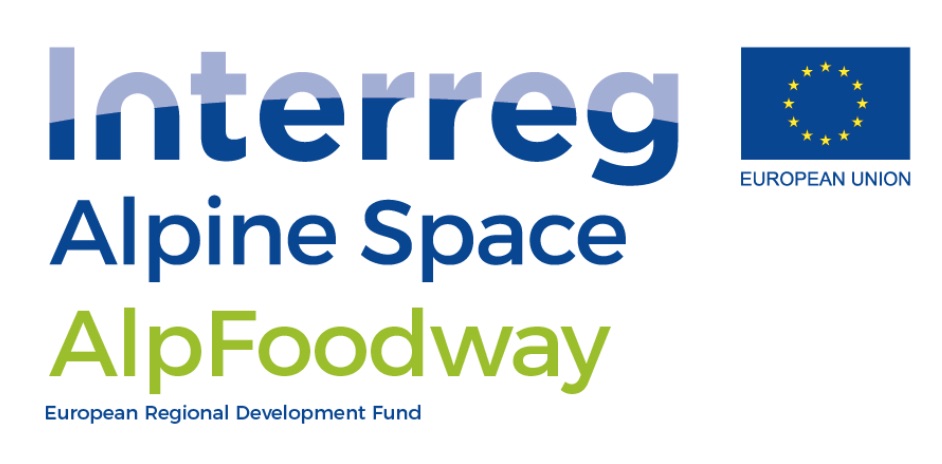Alpfoodway: a cross-disciplinary, transnational and participative approach to Alpine food cultural heritage
Principal Investigator at ZRC SAZU
Špela Ledinek Lozej, PhDProject Team
Saša Poljak Istenič, PhD, Maja Godina Golija, PhD, Barbara Ivančič Kutin, PhD, Saša Babič, PhD, Assist. Prof. Jasna Fakin Bajec, Miha Peče-
Duration
1 November 2016–31 October 2019 -
Lead Partner
Polo Poschiavo, Poschiavo, Svizzera
-
Financial Source
Republika Slovenija

INTERREG, Alpsko območje
Partners
Universitaet Innsbruck (Avstrija), Syndicat Mixte du Parc naturel régional du Massif des Bauges (Francija), Associazione Dislivelli (Italija), Hochschule für angewandte Wissenschaften München (Nemčija), Assessorato Istruzione e Cultura della Regione autonoma Valle d’Aosta – Bureau …, Association Groupe Kedge Business School (Francija) , Razvojna agencija Zgornje Gorenjske (Slovenija), Comunità Montana di Valle Camonica (Italija), RRA Severne Primorske d.o.o., Nova Gorica (Slovenija), TSM –Trentino School of Management (Italija), Regione Lombardia (Italija)
Alpine Space is a vulnerable space in terms of biodiversity as well as cultural heritage and traditional know-how. The latter are at risk of disappearing because of depopulation, ageing of population and globalisation processes that severely affect marginal areas. In this context, culinary heritage is a strong identity source for alpine populations, and it goes beyond mere products to include productive landscapes and traditional knowledge on production techniques, consumption customs and rituals, and the transmission of ancient wisdom. Traditional culinary heritage is characterised by common values that are specific to the Alpine Space and a joint asset generating a great variety of high added-value products that are, unfortunately, insufficiently promoted and distributed. The project will create a sustainable development model for peripheral mountain areas based on the preservation and valorisation of Alpine Space cultural culinary heritage and on the adoption of innovative marketing and governance tools. It will also foster the emergence of a transnational alpine identity based on the common cultural values expressed in culinary heritage.
Project outputs include Vision Paper, Value Charta, digital mapping of traditional culinary heritage practices and replicable development paths for the safeguarding and commercial exploitation of existing know-how. In addition, the team will devise a cutting edge online inventory, organise courses and develop professional educational units, which will be needed for the transmission and commercial exploitation of traditional knowledge. Not least, the team will develop a cultural exchange platform in order to generate strategic instruments, guidelines to develop participative safeguard processes, studies to promote alpine food value chain, and online inventory for Alpine Food ICH.
The project will benefit heritage communities, local development professionals and organisations, cultural institutions, local, regional and national authorities through linking culinary heritage with marketing and consumer culture. Doing so it supports ‘bottom-up’ mobilisation processes based on engagement/empowerment of the local residents. The project also contributes to a recent international debate (the 2013 UNESCO Convention) on the Intangible Cultural Heritage.
All Alpine administrations are experimenting safeguarding and valorisation solutions – albeit in a fragmented and uncoordinated way. The project will develop this theme at an unprecedented scale – the entire Alps. As future perspective, the Alpine community could aspire to inscribe the Alpine culinary heritage on the UNESCO intangible cultural heritage list as a traditional foodway.
For more information visit: AlpFoodway
